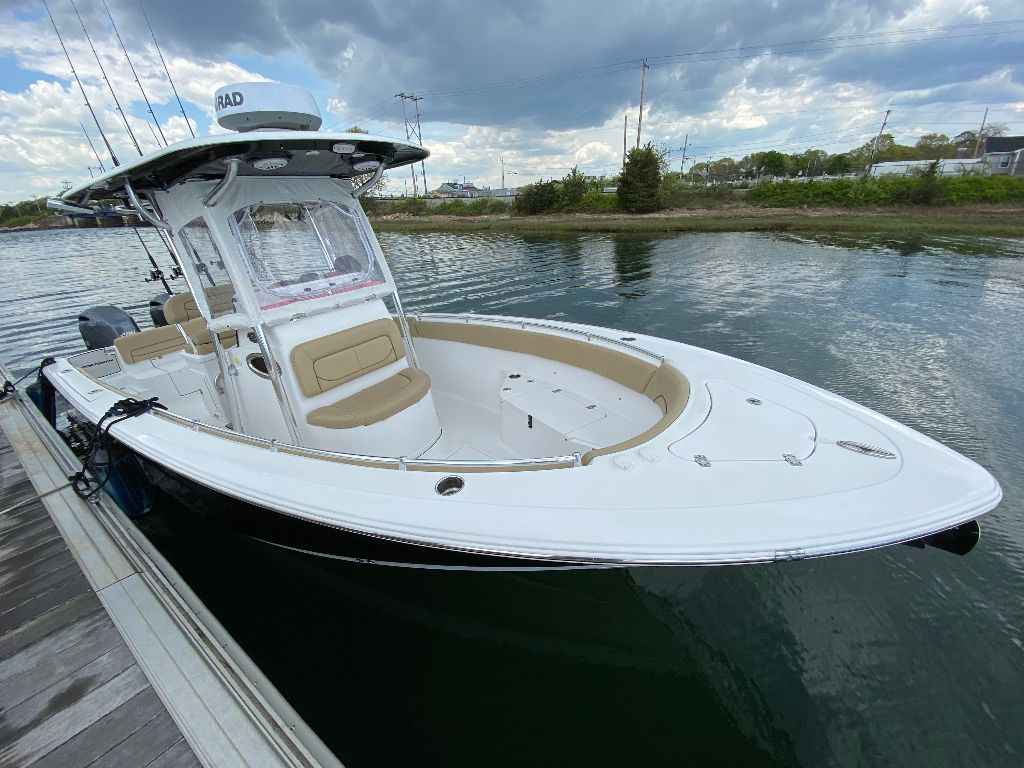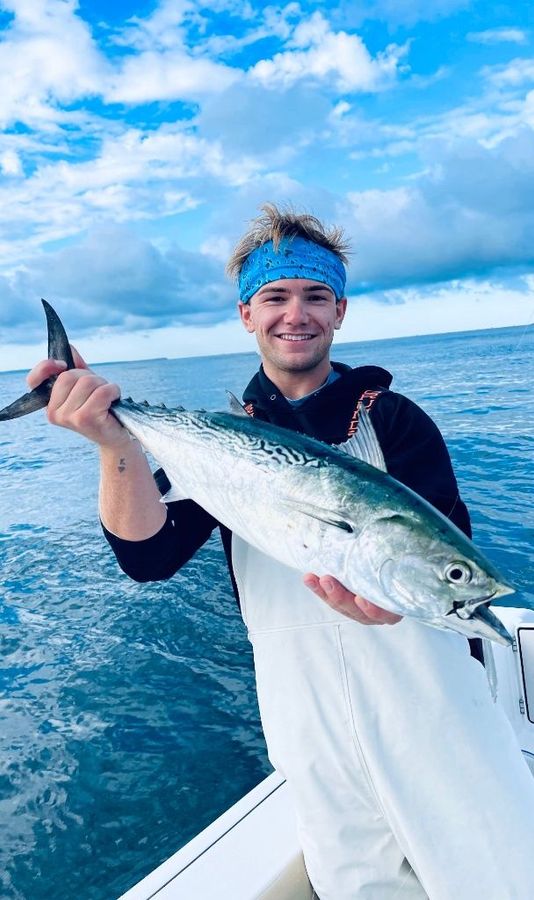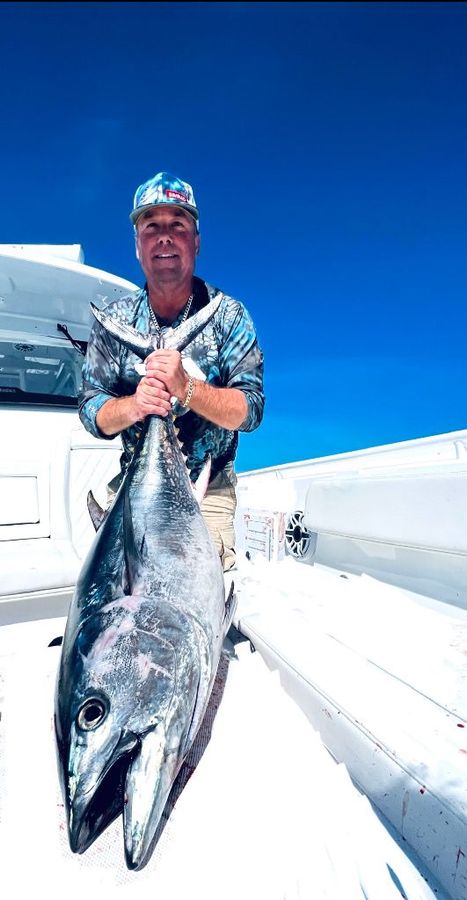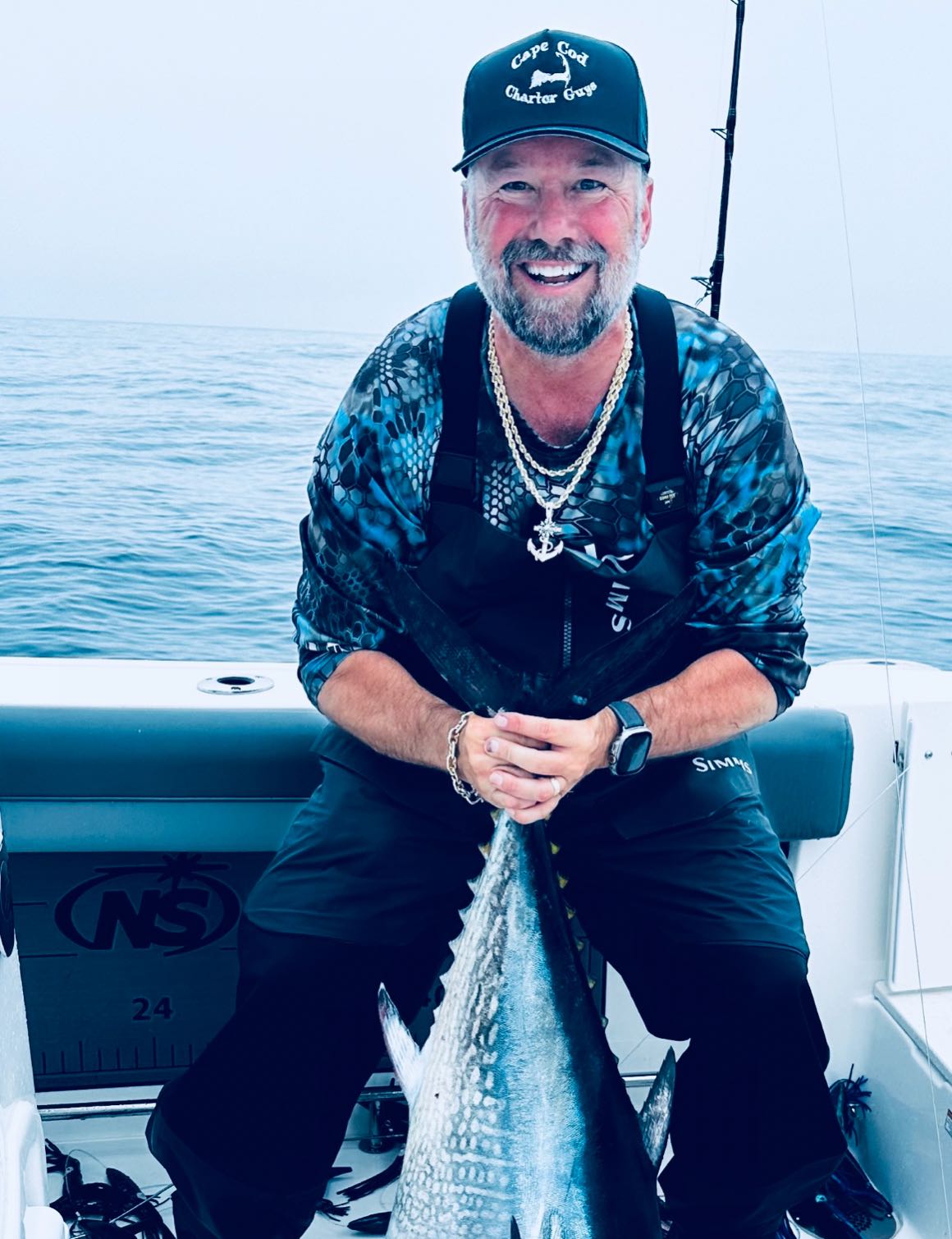Father and Son Fishing Business
Get in the know and learn how to start a fishing business with Ross Walkinshaw.

A quick guide to running a business with your family by Captain Ross Walkinshaw of Cape Cod Charter Guys.

My son and first mate, Jayden, and I have been running Cape Cod Charter Guys for a few years now, and I wouldn't trade it for the world. It's amazing to go on a fishing trip with your family and share your passion, but it's even better when you get to earn a living out of it! One of the things that I'm endlessly proud of achieving as a father is that I was able to pass down such a positive influence in my child's life simply by doing what I do.
So if you'll ask me - would I recommend running a charter fishing business or entering the fishing industry? If you love fishing and have your own boat, then why not? I am a living testament to the saying, " Choose a job you love, and you'll never work a day in your life."
If you’re seriously considering going into a fishing business, then let me walk you through what a charting business is and what it’s like running a charter business. We’ll also tackle how you can take your business to the next level and the benefits of running a business with your family.

What Is a Fishing Charter Business?
Simply put, a fishing charter business allows you to take anglers on different types of fishing boat experiences - whether it's nearshore, inshore, or offshore. Some fishing charters have target fish specializations. For example, here in Cape Cod, you may have a fishing business specializing in providing excellent bass fishing experiences. In other states, you might have fishing charters that focus on deep sea fishing for billfish or fly fishing. The possibilities are endless. Often the specializations may have to do with the captain's own expertise as an angler and what's particularly productive in the fishing spots in your area.
What Is It Like Running a Charter Business?
There are a lot of things involved in getting a fishing business up and running. It’s really just like any sort of business, with a few specific exceptions. Here are some of the important steps you need to go through if you’re thinking about starting your own:

1. Come Up With a Business Plan
Before anything else, sit down and come up with your objectives for your business. What exactly do you hope to achieve, and how do you plan on achieving them?
While fleshing out your plan, you should research the market. Learn about the other fishing businesses in the area and which gaps in the market you can fulfill.
Then, think about what kinds of services you want to offer, how you want to price your services, and your target market.
And when you've done your market research and thought about your niche in the fishing industry in your area, you should research the expenses involved in running your business as well. That may include gas, boat payment (whether you're buying or leasing one), insurance, equipment, and the like.

All these should be factored into your business plan.
2. Get Licensed
If you are running your own fishing boat, you should make plans to get your captain’s license. You have two options if you’re running a charter business. One is the Operator of Uninspected Passenger Vessels or OUPV License. It is typically known as the Charter Boat Captain’s License. The second one is an upgrade, the Master Captain’s License - which my mate and I at Cape Cod Charter Guys currently have, though you can certainly qualify for a Master Captain’s License without having the OUPV, as long as you meet their requirements.
To qualify for either license, you need some professional experience on a boat and the endorsement of a licensed captain as well. Because of this, you may need to take on some deck experience with a mentor who will be willing to endorse you once you’re ready to take your licensing exam.
Apart from this, you should also get your boat licensed. Different states may have varying requirements, so do check with the authorities to make sure your boat is compliant with all the regulations.
3. Differentiate Your Business with a USP
A USP is your unique selling point. Think of this — out of all the many fishing charter businesses in a harbor, why would they choose you? I think our USP at Cape Cod Charter Guys is that we’re a father-and-son team both with Master Captain’s Licenses and that we like to keep our boating experience a luxurious and intimate one. So find what makes your fishing business special — and sell it.
4. Get Registered in Your State
To make sure your business is legal and compliant, make sure your business is registered with the state. Before that, choose a business structure that works for you. The most common in the charting business is a partnership or a sole proprietorship. Find out which ones work for you by consulting the US Small Business Administration guidelines.
How Can You Take Your Fishing Business to the Next Level?

There are so many ways you can go about improving your fishing business: investing in quality and modern fishing equipment, doing your market research and updating your services to address the changing needs of your target clients, and improving your skills as a captain, guide, and angler. At Cape Cod Charter Guys, we don’t like to rest on our laurels, and so we consistently do these routine checks to make sure we’re keeping up with the times.
One of the things we definitely invest in is our boat. We like to keep our boat in tip-top shape to ensure a safe and comfortable fishing experience for all our clients. Not only do we like to keep our boat luxurious and clean — we invest in upgrading our engine and safety features so all our rides will be guaranteed smooth sailing in more ways than one.
So as you can see, running a fishing charter business requires its owner to consistently stay on top of a lot of things — skills, expertise, services, and equipment. To keep your clients comfortable (and to keep them coming back), you cannot get comfortable with what you have. You constantly have to keep an eye out for things you can improve.
Running a Business with Your Family
Running a business with your family has its own pros and cons, like any sort of partnership. But what makes it more special is that there’s already a level of comfort there. You share the same values, so decision-making won’t be as tough. And if you, like me, have a son or daughter who shares your love for fishing, then working with them simply feels like hanging out with them daily — and you both get paid for it.
That said, before jumping into a family business, you should first discuss what your vision is. Just because you’re family doesn’t mean you have a shorthand. As with any business partnership, clear and consistent communication is key to success.




